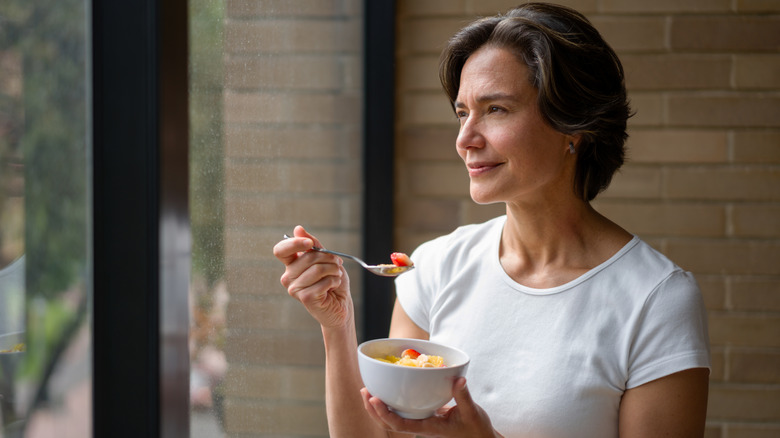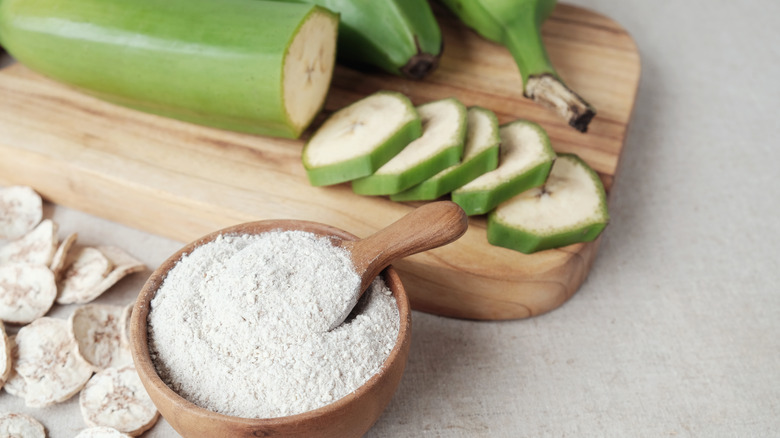This Popular Fruit Can Help Reduce Your Risk Of Cancer
Colorectal cancer accounts for 7.6% of cancer cases and 8.7% of all cancer deaths in the United States, according to the National Cancer Institute. The National Library of Medicine says about 5 to 10% of colorectal cancers are due to these inherited mutations, with the most common being Lynch syndrome. If you have this hereditary risk, your risk of colorectal cancer goes up by 80%. Women's risk of endometrial cancer increases by 60%.
Lynch syndrome also increases your risk of other cancers such as those in the stomach, small intestine, liver, and brain. That's why those with a family member or an early diagnosis (before age 50) of colorectal or endometrial cancer should consider genetic testing or tumor screening for Lynch syndrome. Even though there isn't clear evidence of how the diet might affect your risk of colorectal cancer, the starch found in slightly green bananas might reduce the risk of other cancers in people with Lynch syndrome.
Resistant starch might protect against cancer
Although you can take resistant starch as a supplement powder, you can find resistant starch naturally in oats, cooked then cooled rice, and beans. Green bananas and plantains are higher in resistant starch, but the starch turns to sugar as the banana ripens.
A 2022 article in Cancer Prevention Research looked at how resistant starch and aspirin might affect the risk of cancer in people with Lynch syndrome. People were given 30 grams of resistant starch to take every day for four years, then the researchers followed up about 20 years later. Even though the resistant starch didn't decrease the risk of colorectal cancer, it did reduce the risk of other cancers that are often linked with Lynch syndrome.
The bacteria in your gut break down resistant starch and produce butyrate, which can protect against cancer, especially the types of cancer linked to inherited mutations. The researchers also believed that resistant starch might reduce cancer by lowering harmful secondary bile acids.
Ripe bananas also have anti-cancer compounds
If you're not crazy about the somewhat bitter green bananas, you can let them ripen for other cancer-fighting nutrients such as flavonoids, cinnamic acids, and polyphenolic compounds. Extracts from the peel and pulp of a banana can damage colon cancer cells and stop the cells from multiplying, according to a 2021 article in Frontiers in Oncology. These banana peel and fruit extracts have the same effect on breast cancer cells. Banana flower extract can thwart cervical, liver, and prostate cancer by inhibiting the growth of the cancer cells. Most of this research has been done in the lab rather than on humans.
Among human studies, people who eat more bananas throughout their week have a lower risk of esophageal cancer. Eating about 9 grams of banana every day can also reduce your risk of breast cancer. An extra small banana (less than 6 inches long) is 81 grams and has 72 calories and 2 grams of fiber.



